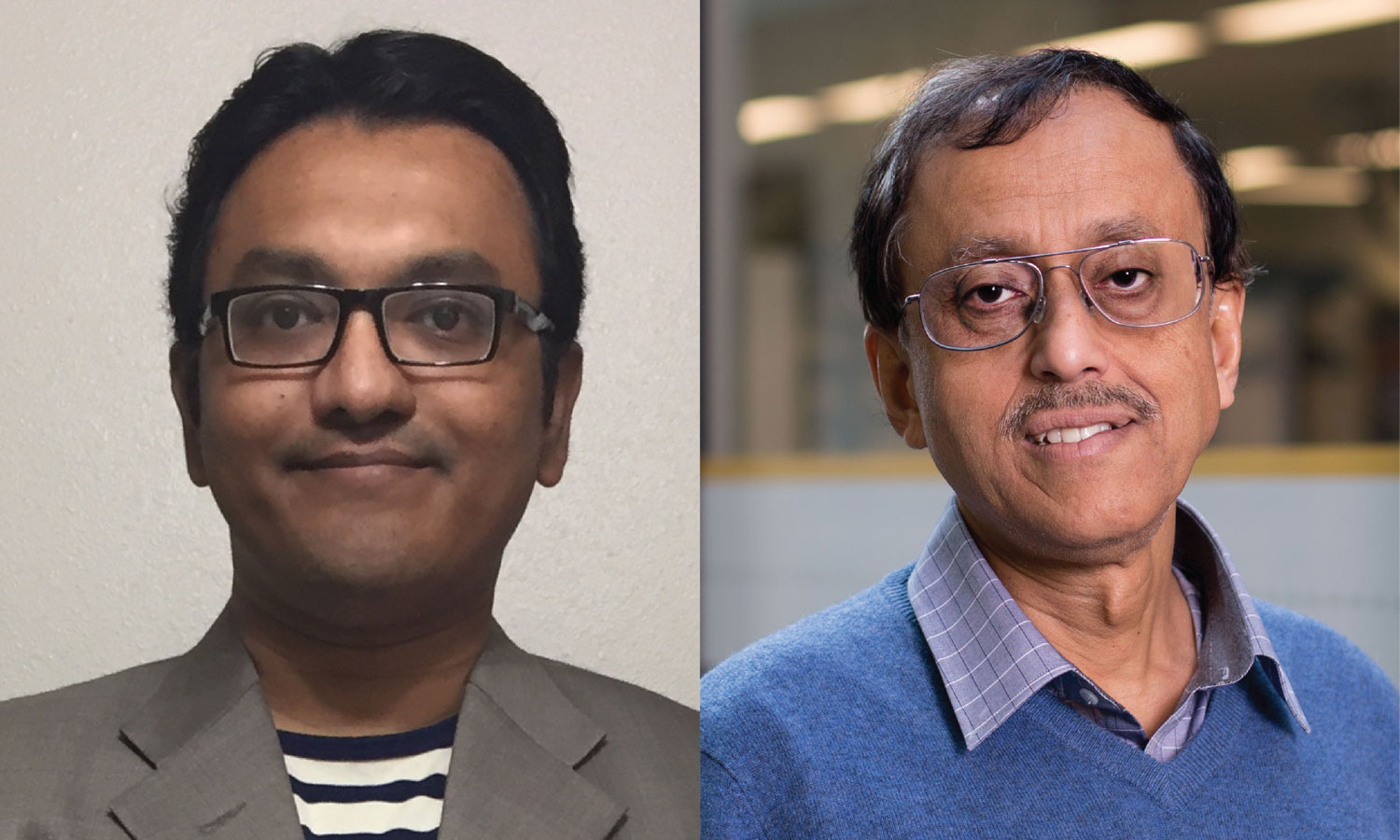Md Ahsanul Abeed, Ph.D. (Ph.D.’20), has received VCU’s 2020 Distinguished Dissertation Award.
VCU’s Office of Graduate Studies presents one award annually in each of four groups of academic disciplines. Abeed’s research received the award for doctoral dissertations in physical sciences, mathematics and engineering.
His adviser was Supriyo Bandyopadhyay, Ph.D., Commonwealth Professor in the Department of Electrical and Computer Engineering.
Abeed investigated a method that uses nanoscale magnets for information processing. Employing nanomagnets instead of transistors for this purpose offers a number of advantages. Magnetic devices are non-volatile, so they can store information after power has been switched off. They can also be much more energy-efficient than transistors.
The main focus of Abeed’s research was applying electrically generated mechanical strain to switch the magnetic states of nanomagnets, a cutting-edge field called straintronics. He applied these strain-switched nanomagnets to accomplish many information processing tasks very efficiently. These include image processing, signal generation, probabilistic computing and other computing processes that are not based on the conventional Boolean logic used in most digital computers today.
Abeed’s dissertation presented an in-depth characterization of straintronic nanomagnets for non-Boolean computing. It also detailed the fabrication and performance of two devices based on these concepts: an acoustic antenna and a simulated annealer for ground state computing that employs interacting nanomagnets to solve optimization problems without the involvement of any software. He designed and prototyped both devices in VCU College of Engineering laboratory facilities. He also studied the effects of defects on straintronic devices and how they can impair certain types of circuit operations.
While pursuing his Ph.D., Abeed mentored two high school students, who both co-authored journal papers with him about the role of defects in straintronic computing and the development of a novel device for probabilistic computing. The last work resulted in a VCU project that was recently funded by the National Science Foundation.
“He has conducted seminal work in this field,” said Bandyopadhyay, who is an internationally recognized pioneer in the fields of straintronics, spintronics and electrochemical self-assembly of nanostructures. “He is a highly talented researcher who is also very industrious. As a result, the quantity and quality of his publications, many of them in high-impact journals, have been impressive. I am extremely pleased that he has received this award.”
Abeed is now with Micron Technologies, working in their U.S. research and development headquarters in Boise, Idaho. He said the opportunity to work with Bandyopadhyay was a factor in his decision to pursue his doctorate at VCU Engineering and that he uses the training and knowledge he gained in the program “every single day” in his work for Micron.
“I believe nanomagnet-based computing will shape the future of device technology thanks to its non-volatility, extremely low energy consumption and very small footprint,” Abeed said. “I was fortunate to study [at VCU Engineering]. I often think back to my research in West Hall and the Nanomaterials Core Characterization Center. I miss it.”
